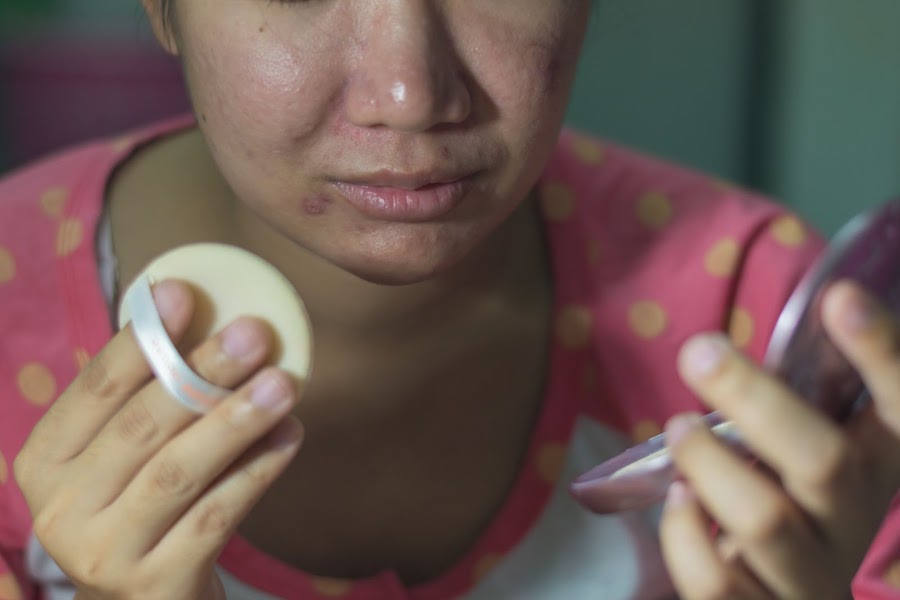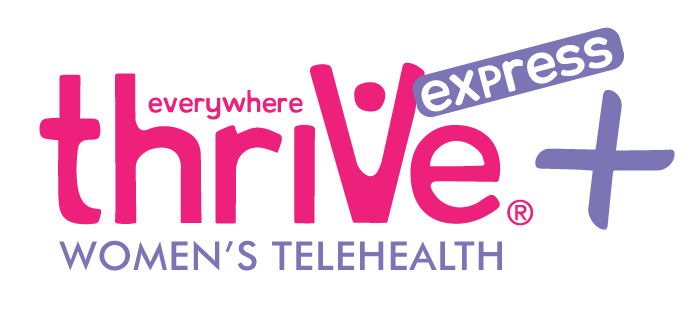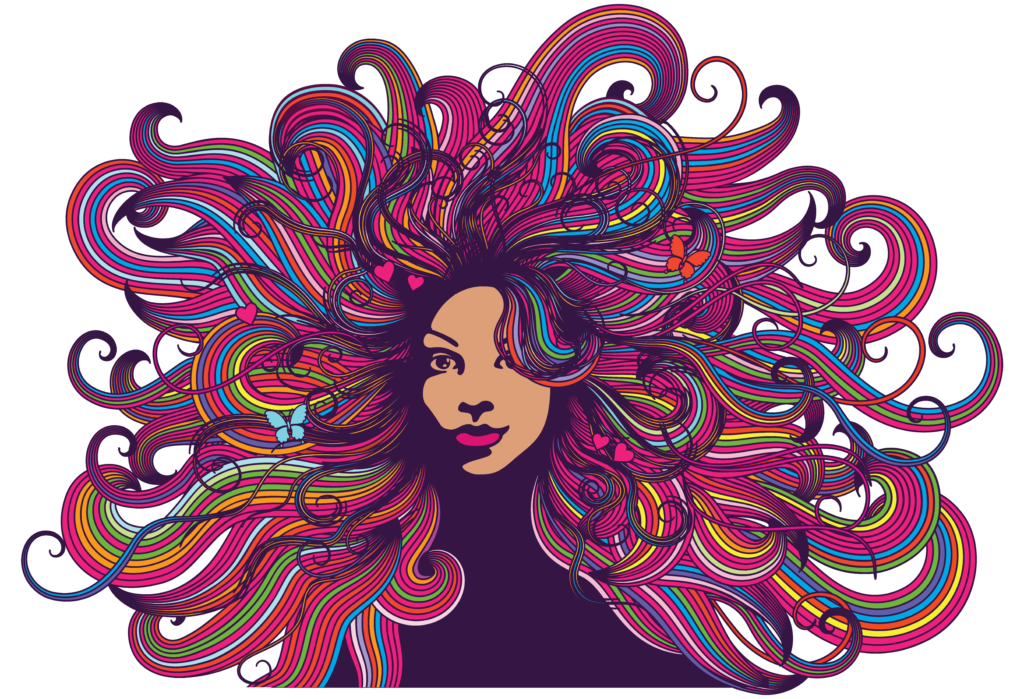Hormonal changes throughout a woman’s life — from menstrual cycles, to ovulation, to pregnancy — play a role in our skin health.1 If you have questions about your period, body, ovulation and other health questions, we get it. Our blog section is a great resource to find answers to your questions! Our women’s center is a safe space for women to get information about all things health: abortion, pregnancy, pms symptoms (premenstrual syndrome), cycle syncing, even acne. For now, we’re chatting about healthy skin, hormonal acne, and how you can sync your skincare routine to get your glow back. When it comes to acne that affects you on a daily (or monthly) basis, don’t panic! The first step is figuring out why your acne is making an appearance.
Let’s break down some of the connections between estrogen and progesterone and your skin. Skin issues might be linked to underlying reproductive health factors.2 So if you’re on top of your skincare, and still frustrated with your results, please know you’re not alone. Let’s talk about some of the factors that can affect the skin.

How can hormones affect your skin?
Many times, causes of breakouts and other issues are more than skin deep. The idea that you can sync (or tailor) your skincare routine to what’s happening inside your body takes this into account. Things like the phase of your menstrual cycle (follicular phase, luteal phase, ovulation), pregnancy, and hormonal conditions can show signs on your skin.3
1. Menstrual Cycles and Acne
Many women notice breakouts during certain points in their cycle (often about a week before your period starts).3 Yup, we’ve all had period breakouts at some point. This “hormonal acne” usually happens due to a spike in menstruation called androgens, which increase oil production.3 That leads to clogged pores. If you’re cycle syncing your skincare, remember that a healthy diet helps you glow. Make sure you’re staying hydrated and eating a well-rounded diet including whole grains and lean proteins (and avoiding high carb snacks like chips) not only helps your skin,4, 3 it can help manage some of those PMS phase symptoms (like the bloat feeling).5 And just in case you’re wondering, go ahead and have that square of dark chocolate if you’re craving it. Despite the myth, eating chocolate doesn’t cause acne.3
2. Pregnancy and Melasma
When a woman becomes pregnant, she might notice changes in her skin. Again, this is due to changes in her body. During pregnancy, a woman might notice acne or even dark, patchy spots that appear on the forehead and cheeks — called melasma. Sometimes it’s nicknamed the “mask of pregnancy.” Melasma often fades after childbirth, but it may require extra care like sunscreen and gentle skincare.6 Whether you’re cycle syncing your skincare routine or not, sunscreen is always a good idea!4
3. PCOS and Hirsutism/Skin Darkening
Another factor that can contribute to skin-related issues are conditions like polycystic ovary syndrome (PCOS). PCOS is a problem with hormones that happens during a woman’s reproductive years. With PCOS, fluid-filled sacs (called cysts) develop on the ovary, and these follicles don’t release eggs like they’re supposed to. This condition can affect the skin in a number of ways: severe acne, excessive hair growth, especially on the face or body (called hirsutism), hair thinning, and acanthosis nigricans (darkened skin patches, often in creases like the neck or underarms).7
4. Hormones and Skin Health
Shifts in hormone levels at each menstrual phase can impact the thickness of your skin and overall skin texture. Crazy, right? Estrogen seems to help the skin become thicker and hold more water, and progesterone can make skin issues like acne, eczema, and psoriasis worse.8 While progesterone is high (and your skin is drier!), you might add extra moisturizer to your cycle syncing skincare routine. Our hormones are super powerful! Learning about your cycle and managing these transitions can sometimes help you keep these issues in check. If you have questions about understanding your body’s changes throughout the month our blog is a great place to start! It’s packed full of info about hormones, reproductive health, and gaining control of your health.

Could your skin be responding to an STI?
We talked about chemical changes in the body, pregnancy, and conditions like PCOS, but some sexually transmitted infections (STIs) may also show up on the skin! If you’ve been sexually active, it’s a good idea to get an STI screening. It’s important to say that it’s possible to have an STI without showing symptoms.9 But here are some ways that an STI can affect your skin:
– Sores and Ulcers
– STIs like herpes and syphilis can cause visible sores on the genital area, mouth, or other parts of the body.9 If you’ve been sexually active, prompt STI screening can help prevent a lot of problems. You can get a no-cost screening at our center, and we can often provide treatment at low/no cost as well! Your health and future are worth it.
– Rashes
– Some STIs, like syphilis or HIV, may cause rashes on the skin. Syphilis, for example, can cause a rash on any part of the body (including the palms of the hands or soles of the feet).9 If you notice unusual skin symptoms and you’ve been sexually active, it’s important to get screened and get early treatment if you have an STI. Make your appointment soon so you can get the treatment you need. You deserve that confidence.
Cycle Syncing Your Skincare: The Constants
So, like we talked about, factors inside the body can have effects on the skin. And a woman’s skin changes through her cycle.8 But here are some tips for healthy skin, any day of the month:
1. Be sun smart: Too much sun can age your skin and raise your risk of skin cancer. Slather on sunscreen with SPF 15 or higher, chill in the shade especially from 10 a.m. to 4 p.m.
2. Kick the smoking habit: Smoking can age your skin and cause wrinkles. It cuts off the flow of nutrients and oxygen to your skin and wrecks the stuff that keeps it looking firm and smooth. Plus, all the squinting and lip-puckering from smoking can leave you with extra lines. And it ups your chances of getting skin cancer. Quitting’s tough, but your skin will thank you for it.
3. Be kind to your skin: Keep showers short and not too hot, skip the harsh soaps, shave gently, dab yourself dry, and moisturize if your skin’s dry. If your moisturizer has SPF, even better.
4. Eat well for your skin: A diet full of fruits, veggies, whole grains, and lean proteins can make your skin look great. While the link between food and acne is hazy, some think that fish oil and less junk food might keep your skin looking younger. Drinking lots of water is also key for hydration.
5. Chill out: Stress can mess with your skin and cause breakouts. Keep your cool by getting enough sleep, setting limits, trimming your to-do list, and making time for fun. Don’t let stress cramp your style — your skin might just glow from the inside out if you relax.4
Skin care quiz: more than skin deep
Cycle syncing your routine? Take this quick quiz to explore how your skin health might be influenced by factors inside the body. Maybe it’s hormonal changes, ovulation, reproductive health, or potential underlying conditions. This check-in can help you see what areas might need extra support and how skin concerns impact your day-to-day confidence and wellness.
1. Do you notice any changes in your skin around your menstrual cycle?
– A) Yes, I often get breakouts around the time of my period.
– B) I haven’t had a period for awhile…
– C) I notice a little change, my periods aren’t predictable and I struggle with acne most of the time..
– D) Not really, but I’ve noticed rashes or sores around the mouth or genital area.
2. Are you experiencing any of these skin concerns?
– A) Acne or oily skin, especially around my cycle.
– B) Dark patches on the face (especially on the forehead and cheeks), maybe also with breakouts.
– C) Excessive hair growth, hair thinning, or dark, velvety patches on the skin (especially on the neck, armpits, groin, or under the breasts).
– D) Unusual rashes or sores (and you’ve also been sexually active).
3. How does your skin health affect your confidence and daily life?
– A) It affects my self-esteem, especially when my skin flares up.
– B) I sometimes avoid social events or feel anxious about my appearance.
– C) It doesn’t impact me much day-to-day, but I’d like more support to understand these issues.
– D) It affects my comfort, especially if my skin is sore, itchy, or irritated.
4. If you have noticed skin symptoms like breakouts, hair changes, or dark spots, what support would feel most helpful?
– A) Education on how menstrual cycles and pms affect my skin.
– B) Access to screenings or tests to understand my skin’s health from a reproductive health perspective.
– C) A comfortable, no-judgment space where I can talk about sensitive skin or reproductive health issues.
– D) Information about no-cost STI screenings and health services that can address my concerns.

Results:
– If you mostly answered A: Hormonal shifts, especially around your menstrual cycle, could be a key factor in your skin health. Support for hormonal balance may help. Check out our blog for more info on hormonal health, and schedule a chat with your doctor to get more support.
– If you mostly answered B: Pregnancy-related or hormonal changes like melasma may be affecting your skin. Resources on managing skin during pregnancy could be helpful (like our blog). Come see us at ThriVe for a no-cost pregnancy screening and ultrasound.
– If you mostly answered C: Conditions like PCOS might be impacting your skin and hair health. Talk with your doctor for ways to manage these symptoms and boost your confidence.
– If you mostly answered D: If you’ve been sexually active, it’s a good idea to rule out potential STIs if you have rashes or sores. Access to screenings and supportive resources could be a valuable next step.
Remember, ThriVe+ offers no-cost pregnancy tests, ultrasounds, and STI screenings, all designed to help you stay proactive and informed about your reproductive health — and ultimately, your skin health too.
While we don’t provide dermatologic care, ThriVe+ is designed to empower you to make informed decisions about your health. From hormonal shifts to potential STIs, reproductive health affects every part of you — including your skin.
Sources:
1 https://newsnetwork.mayoclinic.org/discussion/mayo-clinic-q-and-a-understanding-adult-acne/
2 https://www.mayoclinic.org/diseases-conditions/pcos/symptoms-causes/syc-20353439
3 https://www.mayoclinic.org/diseases-conditions/acne/symptoms-causes/syc-20368047
4 https://www.mayoclinic.org/healthy-lifestyle/adult-health/in-depth/skin-care/art-20048237
5https://www.mayoclinic.org/diseases-conditions/premenstrual-syndrome/diagnosis-treatment/drc-20376787
6 https://www.mayoclinic.org/diseases-conditions/sunburn/in-depth/sun-damage/art-20546834
7 https://www.mayoclinic.org/diseases-conditions/pcos/symptoms-causes/syc-20353439
8 https://pubmed.ncbi.nlm.nih.gov/25683236/
9https://www.mayoclinic.org/diseases-conditions/sexually-transmitted-diseases-stds/in-depth/std-symptoms/art-20047081






